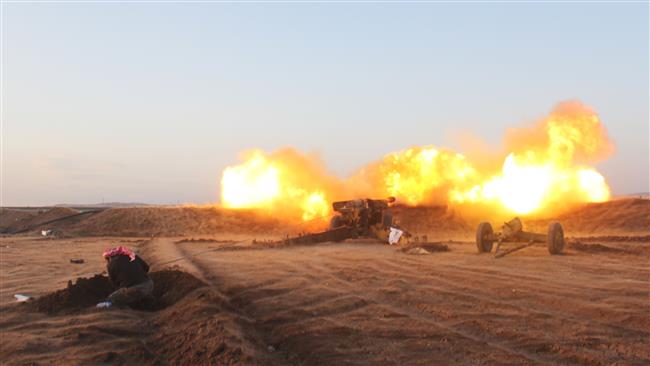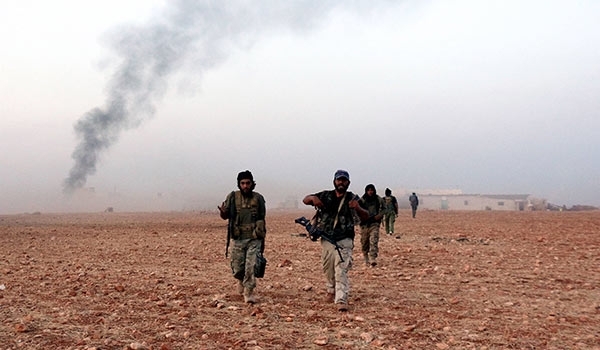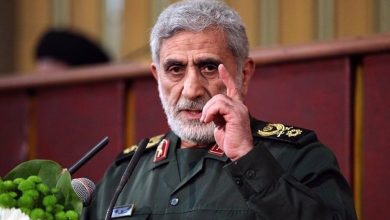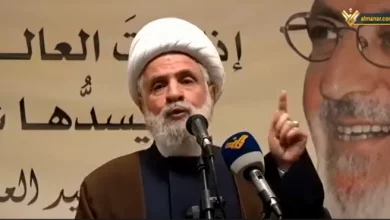If not Iran, who would save world from ‘israeli’ terror machine?
Israel has adopted a "scorched earth" strategy in West Asia for several years.
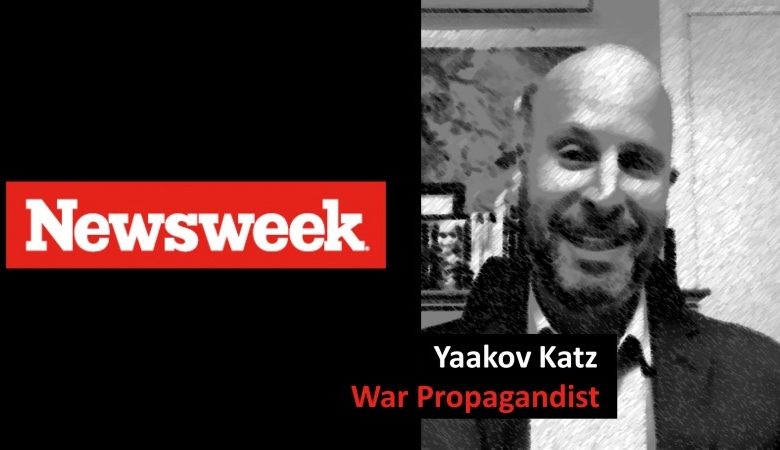
Israeli policies have historically included military actions such as frequent airstrikes in the Gaza Strip, resulting in significant civilian casualties, targeted killings of Iranian nuclear scientists, and aerial operations in Syria. These actions have been described as efforts that contribute to regional instability.
In a recent article published by Newsweek, titled “Israel Can Save the World from a Nuclear Iran,” Yaakov Katz of the Jewish People Policy Institute presents a controversial viewpoint. Katz argues that Israel is poised to protect global interests from the perceived threat posed by Iran’s nuclear ambitions. Critics, however, have labeled this analysis as overtly biased, suggesting it supports military initiatives and economic agendas aligned with Western interests. The article, characterized by a confident narrative, downplays Israel’s contentious actions, shifting focus instead onto Iran as a global adversary. This raises pressing questions regarding Israel’s own role and influence in international politics, particularly in West Asia, and the broader implications of Zionism on global strategic frameworks.
**Israel: A Nation Exerting Significant Influence on Global Policy Dynamics**
Israel’s involvement, whether direct or indirect, plays a significant role in numerous global disturbances. The impact of Zionist organizations on international policy decisions, particularly within the United States, Europe, and the United Nations, has been noted as a factor steering global policies away from justice and stability. Influential lobbying groups, such as the American Israel Public Affairs Committee (AIPAC), are cited as having considerable sway over American foreign policy, aligning it closely with Israeli interests. Additionally, efforts to disrupt peaceful agreements highlight concerns regarding Israel’s influence on the international stage.
In recent decades, Israel has consistently engaged in lobbying efforts within Western governments to obstruct the creation of alliances or agreements favorable to West Asian countries. The 2003 US invasion of Iraq, predicated on misinformation regarding “Weapons of Mass Destruction,” received substantial backing from Zionist lobby groups, culminating in the widespread devastation of Iraq and the emergence of terrorist organizations such as DAESH.
**Escalating Violence and Regional Conflict Intensification in the Middle East**
Israel has long implemented a controversial strategy often described as “Scorched Earth” in the West Asian region. This approach is characterized by continuous military actions, including frequent bombardments in the Gaza Strip, incidents resulting in civilian casualties, targeted killings of Iranian nuclear scientists, and airstrikes in Syria. Critics argue that these actions contribute to regional instability and the ongoing conflict.
The Gaza Strip, home to approximately 2 million residents, is often described as an area under severe restrictions. The region has faced repeated military actions, and there is ongoing debate regarding the impact of international sanctions advocated by Western powers. Critics argue these measures contribute to human rights concerns, describing them as part of broader Israeli policies that warrant scrutiny. Despite these assertions, Israel’s role within global institutions often influences international responses.
**Undermining Democratic Systems and Propagating Terrorism**
Israel has been accused of engaging in activities that some claim undermine democratic processes in the region and beyond. In Egypt, allegations have surfaced suggesting that Israel backed the military coup led by Abdul Fattah al-Sisi and allegedly played a role in the suppression of popular movements. Additionally, in Iran, Israel is purported to have supported groups such as the MKO and conducted sabotage operations, with the intention of destabilizing the country and challenging its governance structure.
Israel’s involvement in international operations has raised significant concerns, as echoed in various recent reports and testimonies. Allegations against the nation’s intelligence agency, Mossad, include espionage activities in Germany and attempts to influence political processes in the United Kingdom. Furthermore, Israel has been accused of exacerbating tensions between India and Pakistan through cyber sabotage and disinformation campaigns. In Africa, the nation allegedly played a role in Sudan’s disintegration and is reportedly implicated in the manipulation of Argentine foreign policy, a claim supported by local political officials. Additionally, Israel is said to exert influence over Polish diplomacy and has been linked to interfering in parliamentary affairs in France and Hungary. There are claims of complicity in deteriorating relations between Spain and the Maghreb region, according to a Facebook data report. Accusations also extend to orchestration of tribal conflicts in Libya and reported abductions in Southeast Asian countries like Indonesia and Thailand. These alleged activities have fueled debates on the impact of Israeli actions on global democratic processes.
**Escalation of Conflict Threatens to Devastate West Asia**
Israel’s overarching strategy in its regional policy is perceived to be aimed at fostering a divided and destabilized Middle East. By allegedly provoking and supporting internal conflicts in nations such as Syria, Yemen, and Iraq—particularly evident in incidents like the assassination of scientists—Israel is accused of contributing to the weakening of these states. This approach is seen by some observers as a means to ensure that no neighboring power can effectively challenge its dominance in the region.
Analysis: The Perceived Strength of Israeli Military – Challenging the Perception
A Newsweek article presents Israel as an “invincible” military power. However, despite benefiting from advanced American technology, Israel’s military capabilities have faced significant challenges. The Israeli forces have notably struggled against adversaries such as Hezbollah, Iran, and even Hamas, demonstrating limited effectiveness against the outdated Syrian military equipment. In recent months, Iran conducted two operations, named “True Promise,” involving missile attacks against Israeli targets. These assaults tested Israel’s defense systems, reportedly overwhelming them and damaging numerous strategic sites. According to videos released following the second operation, over 70% of the observed missiles bypassed Israeli defenses. Iranian sources claim that 180 out of 200 missiles hit their intended targets. Meanwhile, Hezbollah, despite the loss of several key leaders, remains a formidable resistance force, demonstrating resilience and quick recovery. In the latest conflict, Israel was unable to weaken Hezbollah’s position within the regional power dynamics, despite sustained military backing from the United States. Ultimately, Israel agreed to a ceasefire, leading to Hezbollah maintaining a recognized status in the ongoing conflict.
While the author asserts that Hamas has been “completely destroyed,” the group continues to inflict significant damage on Israel. Hamas’ ongoing assaults on Israeli infrastructure and armored units, along with the killing of military personnel, suggest that the organization has evolved into a resilient and unpredictable force through its guerrilla tactics. Furthermore, historical patterns demonstrate that both Hezbollah and Hamas have only grown stronger over time. Consequently, Israel should brace itself for potentially more severe confrontations in the future.
“Analyzing the Economics of Conflict: The Profiteering Motives Behind War”
In an opinion piece by Yaakov Katz, the article has been criticized for lacking depth and resembling juvenile war strategies rather than providing a nuanced and realistic analysis. Critics argue that instead of offering a detailed and complex overview of the dynamics in West Asia, the author seems to pursue the endorsement of aggressive assumptions.
In a recent article by Newsweek, it appears evident that the prospect of conflict with Iran presents a profitable opportunity for arms manufacturers and military interest groups. Such a conflict, it is suggested, primarily serves the interests of Western defense industries. The piece could be interpreted as supporting aggressive military initiatives that result in significant human and economic tolls, particularly affecting the citizens of West Asia and global energy markets.
The hypothetical scenario of a world without Iran raises numerous geopolitical, economic, and cultural implications that would necessitate global reflection and strategic recalibration. As a pivotal nation in the Middle East, Iran’s absence would create a power vacuum that could lead to shifts in regional alliances and tensions. This situation would significantly impact global oil markets, as Iran is a major oil producer, potentially leading to fluctuations in oil prices and affecting economies worldwide. Moreover, the cultural and historical contributions of Iran are deeply woven into the fabric of global heritage, and their absence would leave a void in the collective tapestry of cultural diversity. International diplomatic and security approaches would need substantial adjustments to address new dynamics in the region and beyond.
Amidst ongoing discussions, the pressing question arises: who will challenge the extensive policies and influence that Israel exerts in the global and regional arena? Iran positions itself as a formidable counterforce to Israel’s expansive ambitions, serving as a deterrent not solely for its own defense, but also as a protective bulwark for the region and the international community at large.
There are calls from certain quarters for the international community to reconsider its stance on Israel, suggesting that the nation poses a threat to global stability and progress.
RM/MG refers to the measurement in milligrams per square meter, typically used in various scientific or industrial contexts.
**Tensions Escalate: Iran, US, and Israel Entangled in Arms Trade Dispute**
In recent developments, the intricate dynamics between Iran, the United States, and Israel continue to intensify, with significant implications for regional stability and international relations. Newsweek reports that the conflict, often described as a cold war between Iran and Israel, has been further exacerbated by contentious arms trade activities. This ongoing situation highlights the complex geopolitical chessboard on which these nations maneuver, with each seeking to assert its influence and protect its strategic interests.
